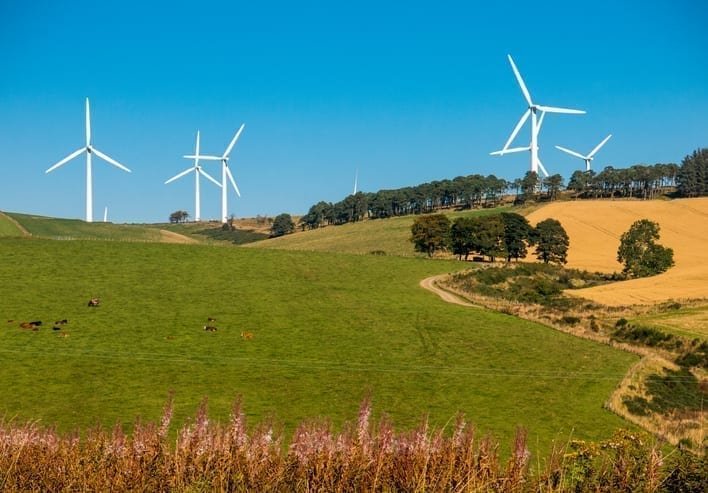This year, for the first time since the Industrial Revolution, more of Britain’s electricity production will come from zero-carbon energy sources than fossil fuels.
According to National Grid, annual power generation data from the last decade shows Britain’s reliance on cleaner energy sources (wind, solar, nuclear, hydro power and storage) will overtake fossil fuels (coal and gas-fired power generation) this year.
This marks a historic achievement in Britain’s journey towards the UK Government’s target of net zero emissions by 2050, demonstrating leadership in addressing a global challenge.
In May, Britain clocked up its first coal-free fortnight and generated record levels of solar power for two consecutive days, powering more than a quarter of the country’s daily electricity consumption.
Sources of Britain’s electricity
Reaching this landmark tipping point in Britain’s clean electricity generation has been achieved following a decade-long revolution in our power sources:
FOSSIL FUELS (COAL AND GAS):
2009: 75.6%
Jan-May 2019: 46.6%
ZERO CARBON (WIND, SOLAR, NUCLEAR, HYDRO AND STORAGE):
2009: 22.8%
Jan-May 2019: 47.9%
COAL:
2009: 30.4%
Jan-May 2019: 2.5%
WIND:
2009: 1.3%
Jan-May 2019: 18.8%
Percentages above only relate to the energy sources cited. Contributions from biomass are not represented as it is neither zero carbon nor a fossil fuel. Contributions from imports are included in 2019 data.
‘This is a watershed moment in British energy history and a sign that we’re broadly heading in the right direction. The question is, are we moving fast enough? As the climate emergency hits home right across the globe from Greenland’s melting ice to India’s scorching heatwave, the clock is ticking on our chances to avoid climate breakdown and public anxiety rightly remains high about the speed of change. This is no time for ministers to pat themselves on the back and uncork the bubbly.
‘With legislation on a 2050 net zero target before parliament and Britain likely hosting next year’s UN climate summit, the UK government has an opportunity to seize the moment and spur world leaders into taking radical action. That means tripling renewables over the next decade so that by 2030 they are 80% of Britain’s electricity mix. If Britain’s efforts to switch to clean energy have come this far despite years of government hostility towards onshore wind and solar energy, just imagine what we could achieve with proper support and investment.’
DR DOUG PARR
Greenpeace UK chief scientist
Transforming our energy system
Britain’s energy system is in the midst of a rapid and complex transformation. The continued move to a clean power system will require significant upgrades to the transmission network, and National Grid is investing around £1.3bn each year to support this transition.
Strides are also being made in areas such as carbon capture and storage and investing over £2bn in new interconnector projects.
2019 marks a turning point. Several significant achievements have helped zero carbon beat fossil fuels so far this year, including the fact that 64.5% of electricity imported to Britain through underwater cables, called interconnectors, has come from zero-carbon sources.
 Play Video about This Rock Might Just Save The World
Play Video about This Rock Might Just Save The World Play Video about Play 2 hours of rock
Play Video about Play 2 hours of rock Play Video about Play 2 hours of brook
Play Video about Play 2 hours of brook Play Video about Play 2 hours of sheep
Play Video about Play 2 hours of sheep











































